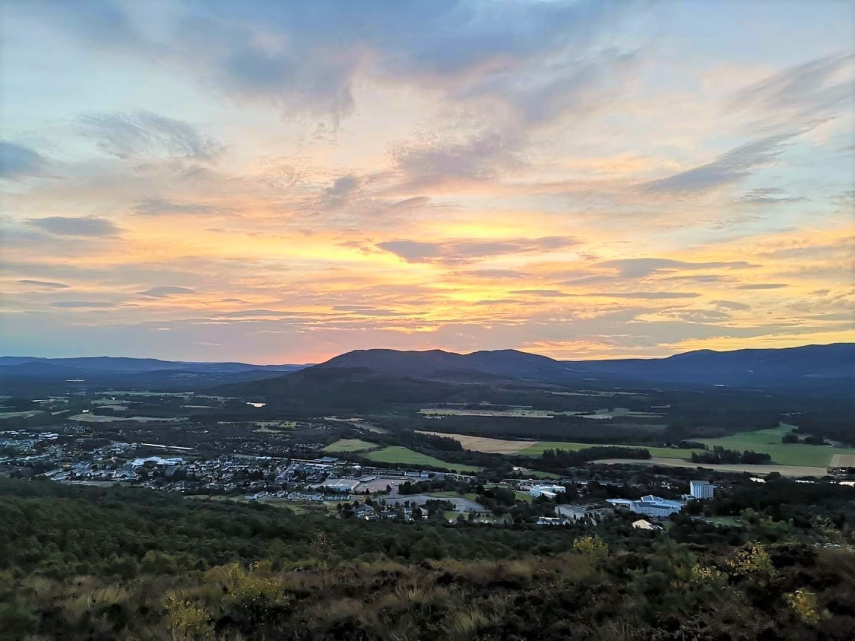
A Just Transition – Are we valuing land in the right way?
Megan MacInnes
In our latest blog, Land Commissioner Megan MacInnes explores if we are valuing land in the right way to build a wellbeing economy and meet the challenges of a just transition.
It’s a busy time in Scottish land reform. We have a new Land Reform Bill underway, accompanied by other changes in the legislative pipeline – for example, the Community Wealth Building Bill and the Agricultural Bill. Within the Scottish Land Commission, on top of the ‘everyday’ job, we are busy engaging with stakeholders to develop our new three-year Strategic Plan.
On the ground meanwhile, recent interest in rural land for natural capital and forestry investments is leading to some of the most significant and rapid changes in land use and ownership seen in recent years.
These rapid changes in demand for land, coupled with continued constrained supply, have focused minds on the financial values of rural land. Both at the point of transfer as well as what that land could secure in the future through subsidies and investment returns. But is that all our land is worth?
In this blog I am stepping back from the technical detail to reflect on the more philosophical question of what the value of our land is and explore how we can measure it more holistically.
When a piece of land or local asset comes under community ownership it is often said that it loses its financial value, as though this is a negative thing. I disagree. The financial value of land under community ownership might, in some cases, become less important, but what increases in relevance are all the additional ways in which that land provides value to the community. This includes social, environmental, cultural, and heritage values, which are a source of wealth generation, job creation, enterprise development, affordable housing, sources of food and responses to the climate emergency, to name but a few. As such, many community landowners have, for many years, been delivering what is now called ‘Community Wealth Building.’
But does that mean we are moving towards a system of two parallel markets and value systems for land? In my view, this is not a viable option for the future. The pressure on our land is only going to increase. So, to ensure all land delivers for the public good and that those benefits are fairly shared, we need to find a way of reconciling these different ways of valuing land, to make sure that all places are recognised as having multiple values – social, environmental, and cultural, as well as financial.
Scotland is in a pretty good position to be able to start doing this. We have a wellbeing economy at the heart of Government and in April 2023 three new missions for 2026 were launched: equality, opportunity, and community. Furthermore, our national performance framework – the metric against which we measure progress – is aligned with the UN Sustainable Development Goals.
This should mean that we have the tools and resources available to ensure that the management of a critical national asset – our land – is done in a way that reflects this holistic approach.
This is certainly something we try to achieve within the Scottish Land Commission’s work. Our new (and current) Strategic Plan is designed to contribute to the national performance framework outcomes of economy, environment, communities, and human rights. And to the UN Sustainable Development Goals of sustainable cities and communities, reduced inequalities, climate action, life on land, and decent work and economic growth.
The potential for land reform to help find a better balance between the protection of private property and privacy rights and the wider economic, social, and cultural human rights (and vice versa) is something we have been particularly keen to explore. Bringing a wider human rights approach to discussions about how we own, manage, and use land is essential to a more holistic value being placed on that land.
Until recently the protection of property and privacy rights had been perceived as a barrier to progressing land reform in Scotland. But since the Community Empowerment Act (Scotland) 2015 and Land Reform Act (Scotland) 2016, the country has moved more in line with the rest of the world in recognising that land reform can help realise wider human rights and that recognition of the economic, social, and cultural rights can help to progress land reform. With a new and ambitious Human Rights Bill expected in this Parliament that aims to incorporate the International Covenant on Economic, Social and Cultural Rights into domestic law, the balance of human rights will again change.
In response to this and in partnership with the University of Strathclyde, we set up the Land and Human Rights Advisory Forum in September 2021. This is a group of lawyers and practitioners with expertise in land reform, human rights, property law, and other areas that advises the Scottish Land Commission on the interplay of developments in land reform and human rights legislation. The Advisory Forum is chaired by the University of Strathclyde’s Malcolm Combe and I represent the Commission’s Board of Commissioners on the group.
One concrete way of using human rights to broaden how land is valued might be including an assessment of the impact on economic, social, and cultural rights within the proposed public interest test for land-scale land transfers in the new Land Reform Bill.
Despite these opportunities, however, the rush for rural land across parts of Scotland for timber and natural capital investments, and the consequences of local families and community groups being excluded from the land market, highlights that financial values still have precedence.
This suggests to me that there is still a way to go to ensure that the high-level ambition of Scotland’s wellbeing economy and just transition is transformed into changes in policy and practice on the ground. Part of that is making sure that the true value of our land – for communities, socio-economic development, and nature restoration – is properly reflected in the land reform agenda.
